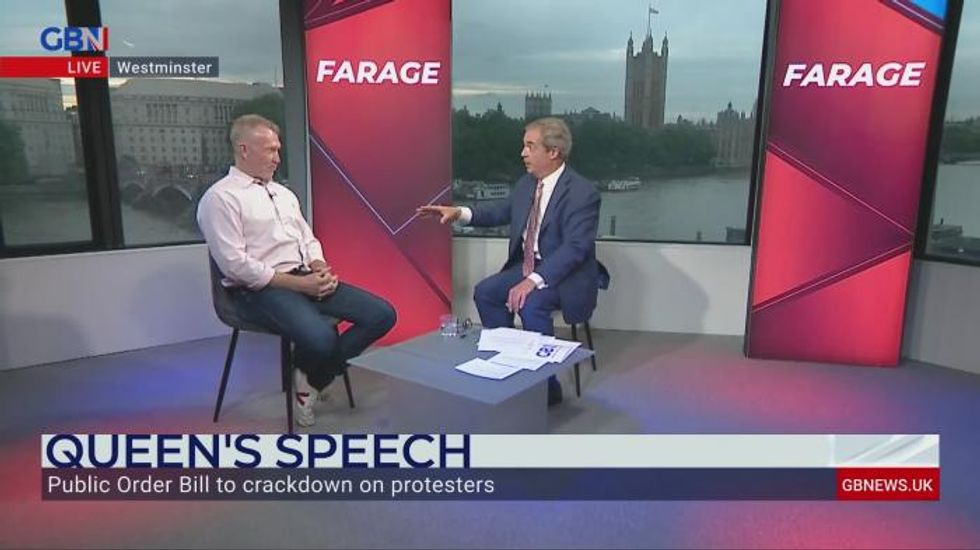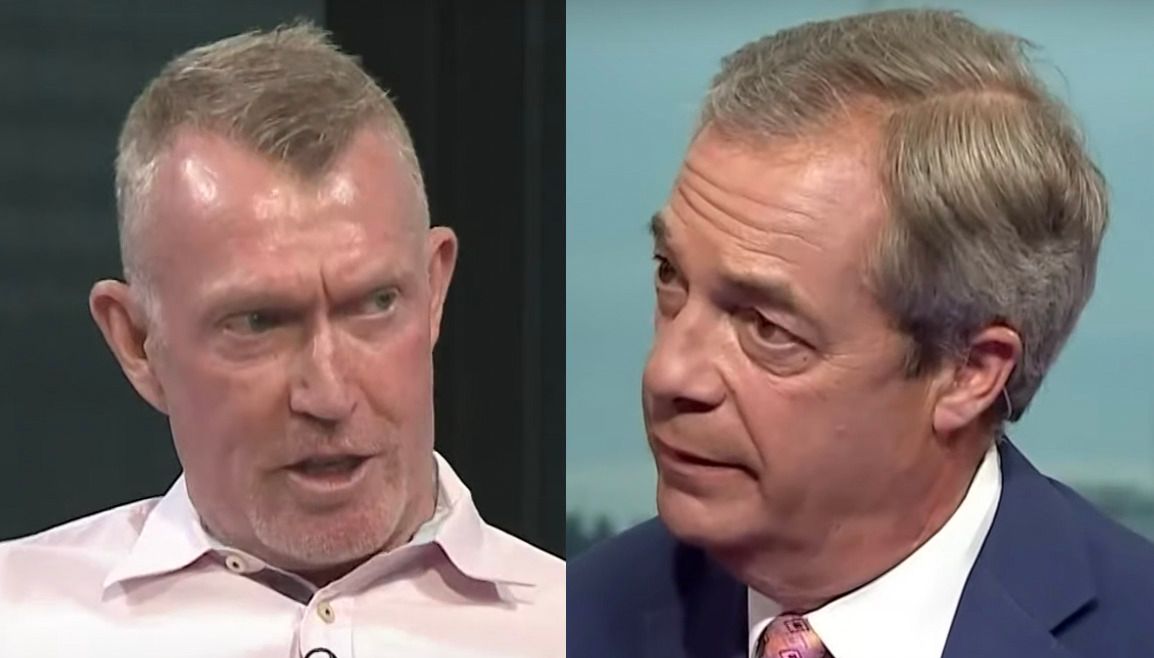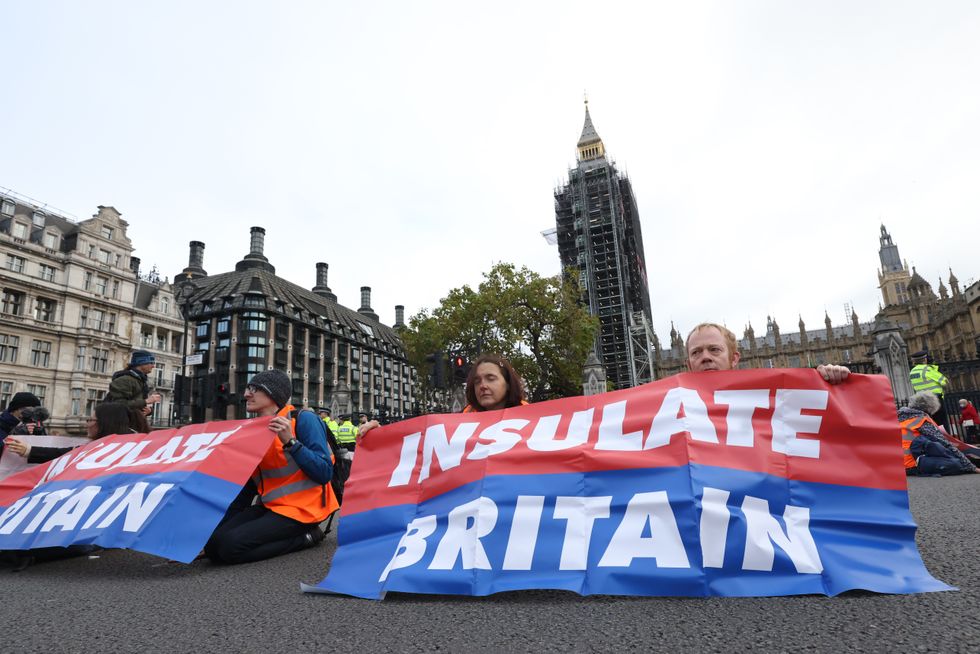The comment came after protester Craig Scudder asked Nigel: "Who started the Industrial Revolution?"
Don't Miss
Most Read
Trending on GB News
Nigel Farage brutally shut down an Insulate Britain protester on GB News.
Craig Scudder, a spokesman for the protest group, was part of a demonstration outside a newspaper printworks last year.
When Nigel said how Mr Scudder reflected back on his “inexcusable” actions, he said: “I was part of that, because we are trying to highlight that certain publications in this country are not covering what is, according to the United Nations, according to all the climate scientists, the biggest threat humanity has ever faced.
“Now we’re not trying to have any editorial say.”
Craig Scudder in conversation with Nigel Farage
GB News
Insulate Britain protesters have been causing havoc across the country in recent months
James Manning
Nigel then stepped in to say: “It sounds like you are.”
Mr Scudder continued: “No we’re not, we were trying to make a point that these publications should be covering the biggest story that is and could ever be with more honesty, more fact-based journalism.”
Nigel then questioned his comments, saying: “Craig, I could argue that the threat of a nuclear war was a much more imminent thing because Putin could have lost his marbles.
“But what I’m saying to you is this. I understand you believe in this very strongly, I respect the fact you’ve got that view.
“I may not agree with that view, and even if I did, I’d say Craig got to China to protest because that’s where the action is.”
The protester responded: “But you wouldn’t say that, you’re better than that.”
The GB News presenter then probed Mr Scudder further: “You know as well as me, we only produce one percent of CO2."
But Mr Scudder wasn’t done there, adding: “But 50 percent of CO2 comes from these small countries, well over 50 percent.
“Who started the Industrial Revolution, Nigel?”
Nigel quickly replied: “Well, look 'I'm not going to apologise for something we did 200 years ago."
The debate comes after ministers launched a fresh attempt to crack down on disruptive “guerrilla protests”, with harsher sentences and new offences for those who glue or lock themselves to roads or structures.
The Public Order Bill will outlaw tactics in England and Wales such as protesters “locking on” to public transport infrastructure or gluing themselves to roads, which have been adopted by campaign groups such as Insulate Britain.
It represents a bid to revive measures which were previously put forward under the now-passed Police, Crime, Sentencing and Courts Bill but had to be scrapped after being knocked back by the House of Lords.
In a sign of the Government’s determination to drive through the measures, officials said the legislation was set to be introduced in Parliament on Wednesday.
A Government document setting out the detail of the Bills announced in the Queen’s Speech said: “Our Public Order Bill will give the police the powers they need to prevent a minority of protesters from using guerrilla tactics that cause misery to the hardworking public, disrupting businesses, costing millions in taxpayers’ money and putting lives at risk.”










